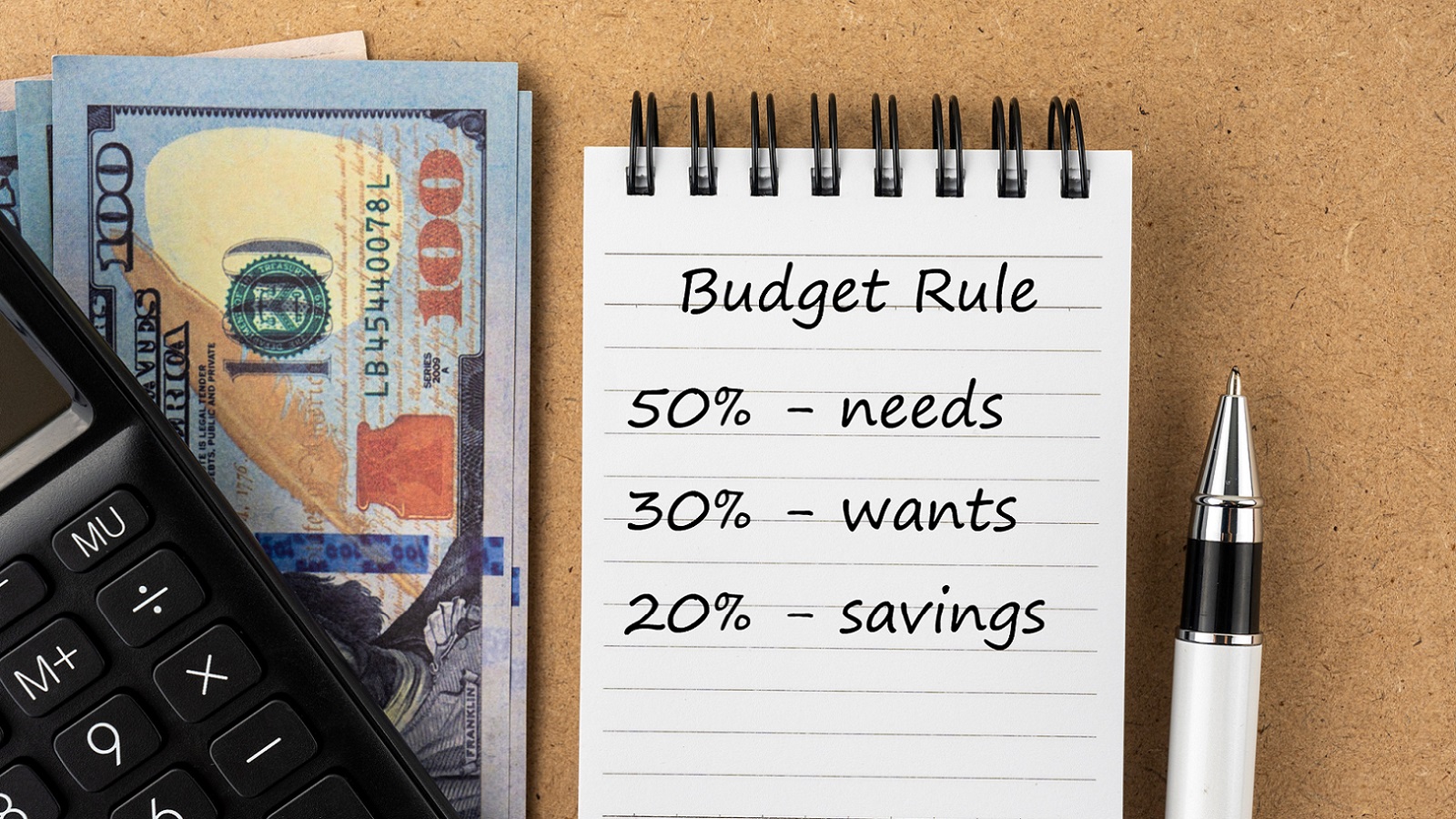The Freshman 15 Financial Flubs to Avoid
Follow these tips to keep spending under control and to avoid racking up debt while in college.

Profit and prosper with the best of Kiplinger's advice on investing, taxes, retirement, personal finance and much more. Delivered daily. Enter your email in the box and click Sign Me Up.
You are now subscribed
Your newsletter sign-up was successful
Want to add more newsletters?

Delivered daily
Kiplinger Today
Profit and prosper with the best of Kiplinger's advice on investing, taxes, retirement, personal finance and much more delivered daily. Smart money moves start here.

Sent five days a week
Kiplinger A Step Ahead
Get practical help to make better financial decisions in your everyday life, from spending to savings on top deals.

Delivered daily
Kiplinger Closing Bell
Get today's biggest financial and investing headlines delivered to your inbox every day the U.S. stock market is open.

Sent twice a week
Kiplinger Adviser Intel
Financial pros across the country share best practices and fresh tactics to preserve and grow your wealth.

Delivered weekly
Kiplinger Tax Tips
Trim your federal and state tax bills with practical tax-planning and tax-cutting strategies.

Sent twice a week
Kiplinger Retirement Tips
Your twice-a-week guide to planning and enjoying a financially secure and richly rewarding retirement

Sent bimonthly.
Kiplinger Adviser Angle
Insights for advisers, wealth managers and other financial professionals.

Sent twice a week
Kiplinger Investing Weekly
Your twice-a-week roundup of promising stocks, funds, companies and industries you should consider, ones you should avoid, and why.

Sent weekly for six weeks
Kiplinger Invest for Retirement
Your step-by-step six-part series on how to invest for retirement, from devising a successful strategy to exactly which investments to choose.
You’ve probably heard about the freshman 15, the amount of weight often gained during the first year of college. Although students should be concerned about packing on the pounds, they also should watch out for another freshman 15. For many, college is the first introduction to managing money on their own. So here are 15 financial missteps freshmen should watch out for to avoid overspending and taking on too much debt while they’re away at school.
1. Spending without a budget . Students might not have much experience tracking their spending. And, unfortunately, most colleges don’t offer a Budgeting 101 course. So their checking account balance could quickly hit $0 if they don’t take the time to find out where their money is going on a day-to-day basis. Students should start monitoring their cash flow from day one of school by checking their account online or with a banking app, by using a site such as Mint.com or by simply using a pencil and paper to record expenditures. CollegeAnswer.com has a monthly budget calculator to help students estimate potential costs and keep expenses under control.
2. Paying for a checking account. It’s become harder to find free checking accounts with no strings attached. But many banks do offer free student accounts with no minimum balance requirements. So students should explore banking options in the city where they’ll be attending school or find out if the bank they or their parents already use offer free student accounts and have a branch near the college campus.
From just $107.88 $24.99 for Kiplinger Personal Finance
Become a smarter, better informed investor. Subscribe from just $107.88 $24.99, plus get up to 4 Special Issues

Sign up for Kiplinger’s Free Newsletters
Profit and prosper with the best of expert advice on investing, taxes, retirement, personal finance and more - straight to your e-mail.
Profit and prosper with the best of expert advice - straight to your e-mail.
3. Racking up credit-card debt. Although the percentage of students who have credit cards has declined since the CARD Act of 2009 started requiring applicants under 21 to have an income or enlist a co-signer, 30% of undergraduates reported having a credit card in 2013 and carrying an average balance of $747, according to Sallie Mae’s “How America Pays for College 2013” survey. Freshmen carried the highest balance, on average -- $1,007. Sallie Mae spokeswoman Patricia Nash Christel recommends that students get experience managing money with a debit card first and only use credit cards for truly necessary expenditures. See How to Teach Kids to Handle Credit Cards.
4. Not taking full advantage of the campus meal plan. If you or your parents have paid for the school’s meal plan, you need to know how many meals are covered and actually eat those meals on campus. If you’re eating cereal in your dorm room or picking up fast food instead, you’re just throwing away money. Christel says that if the meal plan you have isn’t working for you, change it so you can take advantage of what you’re paying for.
5. Eating out too often. So maybe eating in the dining hall isn’t exactly a culinary experience. But students should avoid the temptation to dine out or order pizza frequently. Even going to a restaurant once a week could leave a student without enough cash at the end of the month to cover necessary expenses.
6. Buying coffee at the coffee house. Caffeine can quickly become a student’s best friend. But if students spend $2 or $3 a day getting a caffeine fix from the coffee house, they’ll be shelling out $60 or more a month on coffee. Buy an inexpensive coffee maker instead and save big by brewing your own java.
7. Buying new books when you can buy used. The cost of textbooks can be quite a sticker shock for freshmen and their families. They can cut that cost in half – or more – by buying used books online or renting books. See our tips on finding the best deals on textbooks.
8. Forgetting to show your student ID for discounts. Christel says that freshmen might not be aware that restaurants, retailers, theaters, museums and other entertainment venues offer student discounts. Find out which places around town offer discounts and patronize them.
9. Paying for entertainment when you can get it for free. College campuses can be a great source of free entertainment. Check the school’s event calendar for free movies, concerts and more.
10. Bringing a car to campus. Many schools don’t allow freshmen to bring a car to campus, Christel says. But if your school does, you should leave your car at home to save on insurance, gas and parking costs. You could walk, bike or take advantage of the school’s transportation system, instead.
11. Not getting a part-time job. Although students’ No. 1 job in college is to be successful in their studies, Christel says that most benefit from taking on a part-time job to earn money to pay for college costs, learn to better manage their time and gain work experience they can put on a résumé . Here are six ways college students can earn extra cash.
12. Taking classes you don’t need. Christel says that a Sallie Mae survey found that although 92% of students said they would graduate college in five years or fewer, between 60% and 75% actually take six years to get a degree. So pick a major as soon as possible and stick to classes that meet the requirements of that major so you’re more likely to graduate in four years – and spend less on tuition and other college costs. See our list of college majors that offer students the best prospects.
13. Taking on too much student debt. Christel says that students – and families – should borrow only what they absolutely need. “Every dollar you don’t borrow is a dollar plus interest you don’t need to pay later,” she says. If you need to borrow, explore federal student loans first because they offer fixed rates and flexible repayment plans. See Avoid the Student-Loan Debt Trap.
14. Waiting until you graduate to start making student loan payments. You can lighten your student-loan burden after college by making small payments while you’re still in school. You can start paying federal loans while you’re in college, and some private lenders, such as Sallie Mae, offer an interest-rate discount if you make payments while in school.
15. Giving up the scholarship search. Students who couldn’t secure a scholarship for the fall semester shouldn’t give up hope. Many scholarships have spring deadlines, Christel says, so you can continue your search during the school year. You can register for CollegeAnswer.com’s free scholarship search to access its database of $16 billion worth of scholarships and receive email alerts about scholarships for which you’re eligible.
Profit and prosper with the best of Kiplinger's advice on investing, taxes, retirement, personal finance and much more. Delivered daily. Enter your email in the box and click Sign Me Up.

Award-winning journalist, speaker, family finance expert, and author of Mom and Dad, We Need to Talk.
Cameron Huddleston wrote the daily "Kip Tips" column for Kiplinger.com. She joined Kiplinger in 2001 after graduating from American University with an MA in economic journalism.
-
 How Much It Costs to Host a Super Bowl Party in 2026
How Much It Costs to Host a Super Bowl Party in 2026Hosting a Super Bowl party in 2026 could cost you. Here's a breakdown of food, drink and entertainment costs — plus ways to save.
-
 3 Reasons to Use a 5-Year CD As You Approach Retirement
3 Reasons to Use a 5-Year CD As You Approach RetirementA five-year CD can help you reach other milestones as you approach retirement.
-
 Your Adult Kids Are Doing Fine. Is It Time To Spend Some of Their Inheritance?
Your Adult Kids Are Doing Fine. Is It Time To Spend Some of Their Inheritance?If your kids are successful, do they need an inheritance? Ask yourself these four questions before passing down another dollar.
-
 I Need to Cut $1,000 From My Monthly Budget, and I've Already Given Up Starbucks and Dining Out. What Else Can I Do?
I Need to Cut $1,000 From My Monthly Budget, and I've Already Given Up Starbucks and Dining Out. What Else Can I Do?Here are some creative ways to save up to $1,000 a month, even if you feel like you've already made all of the obvious cuts.
-
 I'm a Government Employee and Need to Get By Until the Shutdown Ends. What Can I Do?
I'm a Government Employee and Need to Get By Until the Shutdown Ends. What Can I Do?The second-longest shutdown in history is leaving many federal workers with bills due and no paycheck to cover them. Here's what you can do to get by.
-
 What Does Medicare Not Cover? Eight Things You Should Know
What Does Medicare Not Cover? Eight Things You Should KnowMedicare Part A and Part B leave gaps in your healthcare coverage. But Medicare Advantage has problems, too.
-
 Five Ways to Save on Vacation Rental Properties
Five Ways to Save on Vacation Rental PropertiesTravel Use these strategies to pay less for an apartment, condo or house when you travel.
-
 How to Avoid Annoying Hotel Fees: Per Person, Parking and More
How to Avoid Annoying Hotel Fees: Per Person, Parking and MoreTravel Here's how to avoid extra charges and make sure you don't get stuck paying for amenities that you don't use.
-
 The 50-30-20 Budget Rule: A Simple Way to Save Money
The 50-30-20 Budget Rule: A Simple Way to Save MoneySaving Using the 50-30-20 budget rule is an easy way to save. It helps you prioritize saving while paying off debt.
-
 'Food Tax': Which States Still Tax Groceries?
'Food Tax': Which States Still Tax Groceries?State Tax Ten states still tax groceries, but that figure is shrinking.
-
 How Our Family Fights Inflation
How Our Family Fights InflationBudgeting Millennials typically spend more than other generations on certain expenses that have been increasing most rapidly. Here are some tips to cut your losses.